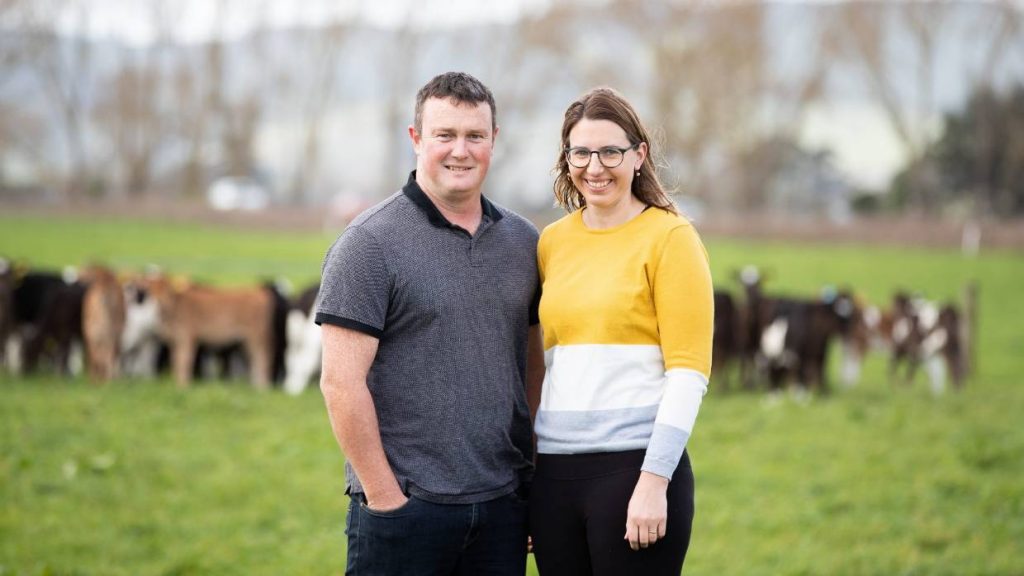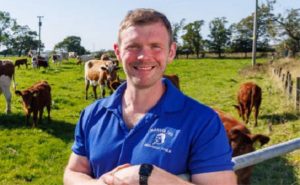But many rural communities don’t have access to the broadband and mobile internet services they need to stay connected.
“Running a business on-farm, we use a lot of apps and technology that provides us with timely information so we can make good decisions,” Waikato farmer Melissa Slattery told Stuff.
“Good broadband and mobile phone connection is really important to enable that data to come through to us.”
RMA ‘hasn’t worked as intended’ – Environment Minister
Environment Minister says a long awaited overhaul of the RMA’s planning laws will put new dairy farm conversions off the agenda in some regions.
Data recording milk volume, milk collection, somatic cell counts and rainfall were just some examples of critical information digitally reported to farmers’ mobile phones, laptops or shed computers.
“Good internet is crucial even for things like paying your bills these days because many [banks] have done away with cheques now.”
Slattery and her husband Justin run a 300-cow dairy farm on a 100-hectare property near Te Aroha.
Melissa Slattery’s view on poor rural internet was backed by a DairyNZ survey of farmers, which showed half did not have broadband or mobile reception needed to run their farm businesses effectively.
Results of the survey were published in DairyNZ’s View from the Cowshed report which produced 10 policy priorities for the in-coming Government to focus on.
Slattery also took the survey and reading over the results was surprised to learn 62 per cent of farmers said they or someone on their farm had experienced mental health issues over the past year.
“That’s not a nice indicator of stress some farmers must be under.”
The survey said regulation changes, financial concerns and the perception of dairying in the media and public were the biggest causes of mental health challenges.
But 66 per cent said they would still recommend dairy farming as a career to their children.
South Waikato farmer Nia Jones thought the divide between urban and rural was a big factor in triggering mental health issues for farmers.
“Farmers feel a lot of pressure from the negative stories that are being shared on social media, it’s usually misinformation.
“We need to be better at sharing our own stories of what it’s like to work on a farm so people can see the reality of it … we change the face of dairying.”
Nia and her husband Marc are contract milkers into their fourth season looking after 950 cows near Tokoroa.
Nia Jones said her “farm team” included one young man “straight out of school” and that was the age group farmers needed help from the new Government to target when it came to recruitment.
“We need to go into schools and colleges, get them involved because there are plenty of jobs.
“We also need to show young people what farming is all about so they can be informed and educated, before they get to that age where they’re on social media believing anything they read.”
Nia Jones and Melissa Slattery both flagged new regulations around environmental care, water and climate change as hurdles the Government needed to work more closely with farmers on.
Targets to meet the goals of the Climate Change Response Bill, for example, had been set by politicians but needed more input from farmers and needed to be tested using science.
Climate change goals also needed to be aligned with international targets for consistency.
“We have always complied with regulations because we care about our land, our cows and our people,” Jones said.
“But new regulations have to be led by those working in the industry and not people in offices in Wellington.
“We’re running a business and regulations can’t come at the cost of our business.”
Farmers’ top 10 priorities for next Government
1. Invest in R&D for primary sector to unlock more value and volume.
2. Set a clear strategy for science funding to support farmers to reduce environmental footprint while increasing profit.
3. Meet workforce needs through training and recruitment of Kiwis as well as skilled migrant workers.
4. Invest in rural broadband and improved mobile coverage.
5. Develop a national water storage strategy and invest in water storage.
6. Develop and enforce a world-leading biosecurity system, learn from M. bovis experience.
7. Reform the RMA to reduce compliance costs, increase efficiency, better environmental outcomes.
8. Partner with farmers and support them to play their part to meet new environmental standards.
9. Ensure targets for water quality improvements are fair and equitable, clear, scientifically robust and have pragmatic time frames for implementation.
10. Review the methane targets in the Zero Carbon Act to ensure they are firmly grounded in science and align our international and domestic targets.













